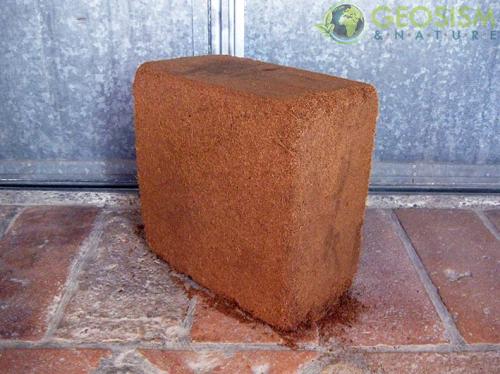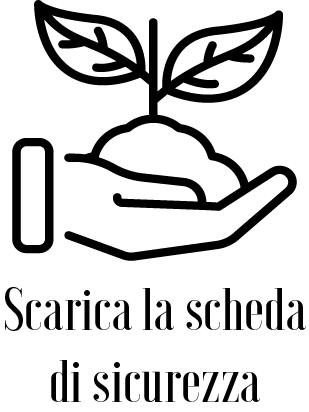Coconut fiber in brick, 100% fine fraction (c.ca 5 kg - 70 lt)
COCONUT FIBER IN TILE, 100% FINE FRACTION (c.ca 5 Kg -70 lt) .
Coconut fiber is a substrate obtained from the shells of coconuts; mainly consisting of lignin and composted outdoors for 2, 3 years. After the maturation phase, this organic material is dehydrated and compressed. It is totally sanitized, that is, free of phytopathogenic (mycetes, viruses and bacteria) and phytogenes (nematodes and insects) infesting seeds in pre-compressed 30x30x12-15 cm bricks made of 100% marrow.
The vast majority of the world's coconut fiber is produced, processed and exported from Bangladesh. Coconut fiber is one of the most practical and efficient substrates on which to grow: light, well ventilated and oxygenated, it has excellent drainage, stable pH, retains humidity, is ecological and recyclable. without nutritional values, so it is essential to irrigate from the beginning with specific fertilizers for coconut or earth. Before its use, the extremely light and space-saving coconut fiber; subsequently it is hydrated acquiring a volume 4-6 times greater than that compressed with undoubted advantages on its handling and transport. It has characteristics close to blond peat but more durable than the latter.
It ensures high drainage, considerable water retention capacity and undergoes degradation phenomena very slowly. Coconut fiber naturally rich in stimulating hormones that help protect plants against disease and fungal infestation. One of the reasons why it is so effective that its purpose in nature is to provide coconut with rich radical nourishment once it has fallen from the tree itself. Furthermore, absolutely ecological both for the origins of the product and for its subsequent disposal.
Simple non composted vegetable conditioner.
MEDIUM CHEMICAL ANALYSIS
Organic carbon (C) of biological origin: 45-50% ss;
Total nitrogen (N): 0.5-0.6% ss;
Organic matter: 94-98% ss;
Lignin: 65-70% ss;
Cellulose: 20-30% ss;
Ash: 3-6% ss;
C / N ratio: 220.
TECHNICAL FEATURES
pH : 5.4 - 6.8;
Total porosity : 94-96% volume;
Porosity : 10-12% volume;
Water retention capacity : 80-85% volume;
Specific apparent weight : 65-110 Kg / m;
Cation exchange capacity : 60-130 meq / 100g;
Conductivity : 0.25-0.50 EC (ms / cm).
FUNCTIONAL CHARACTERISTICS AND FIELDS OF USE
Ideal substrate for:
? cultivation of orchids;
? cultivation of any type of fruit or vegetable plant and for ornamental nursery plants above ground; then placing the plants inside containers and fertilizing the substrate, a more effective and faster production is obtained thanks to better ventilation, oxygenation, water retention and an excellent cation exchange of the substrate;
? for hydroponic cultures in general;
? as bedding for animals.
NB: NEWS ON VOLUME AND WEIGHT
The tiles weigh about 5 kg each, the weight only an indicative figure because it depends on various factors: humidity, percentage of fiber, percentage of husk, etc ...
Each individual tile develops a volume of about 70 liters once it is manually debrised or, better, when it is wet and swells.












